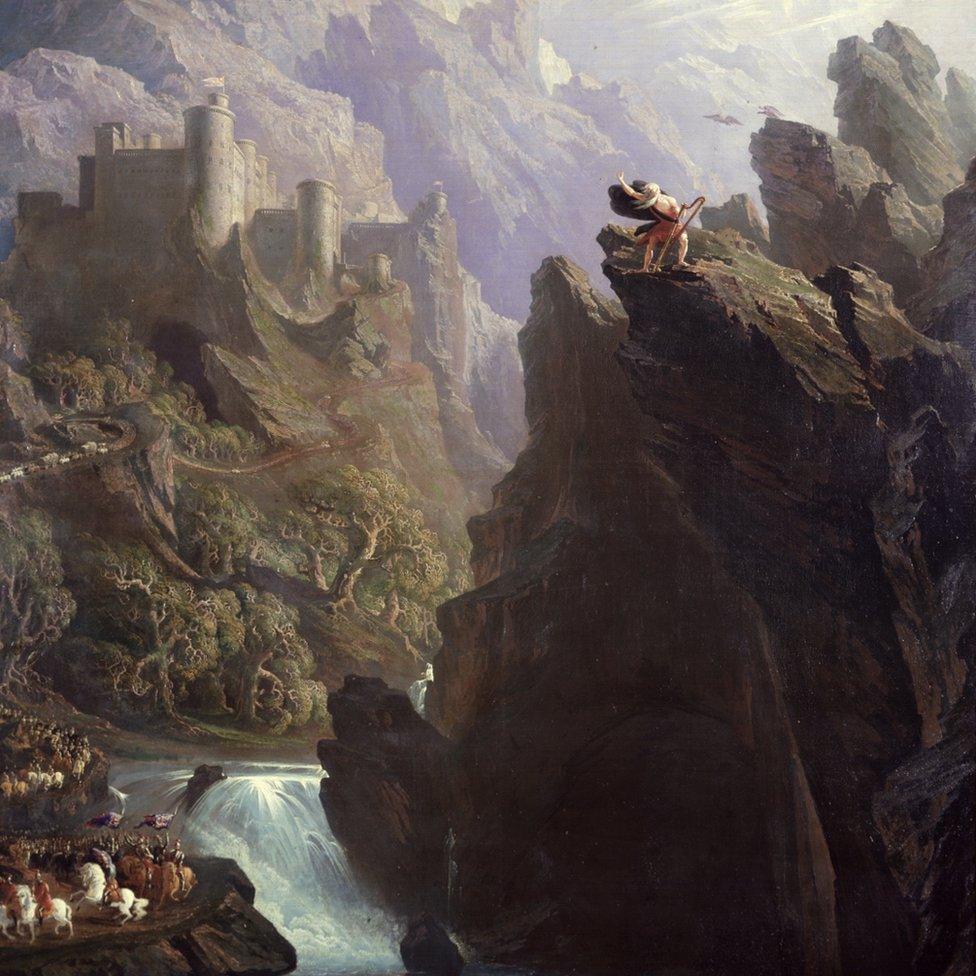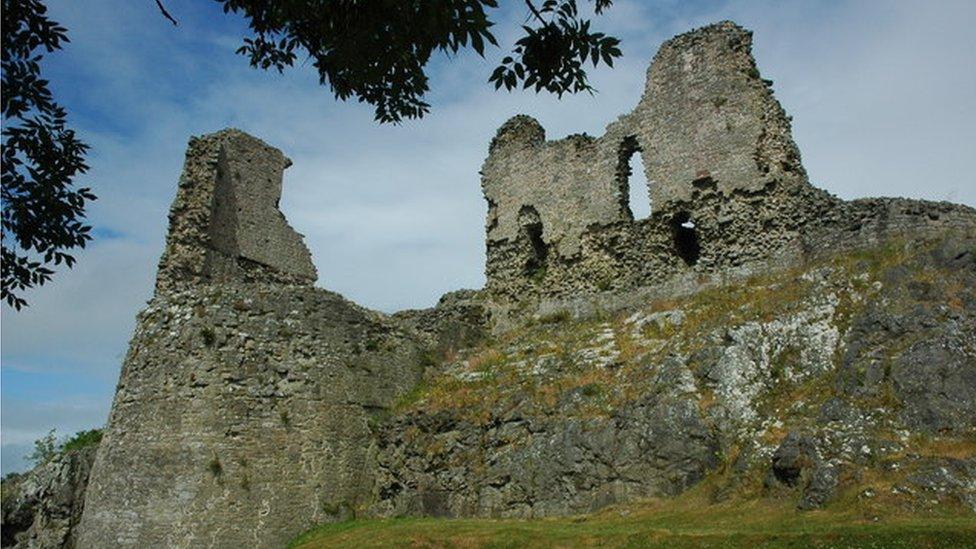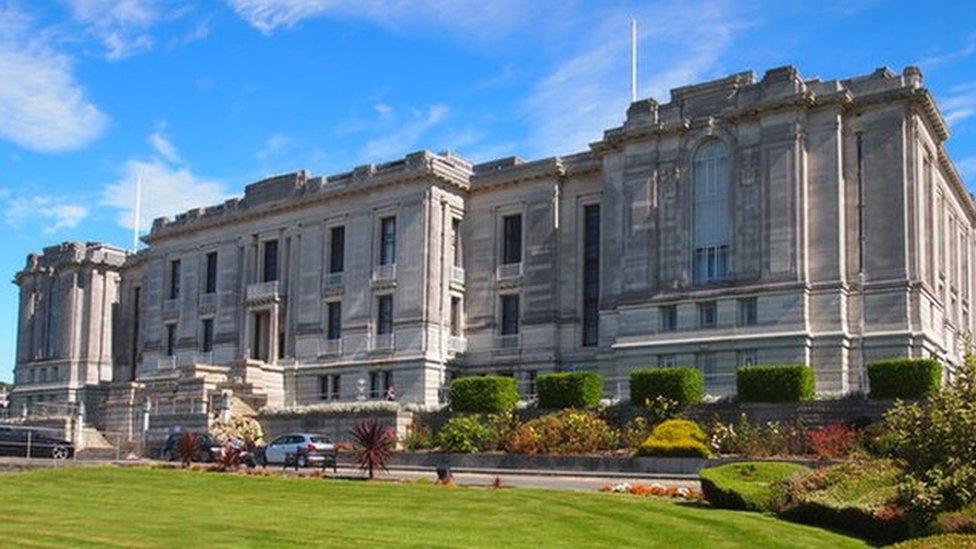Hungary celebrates legendary tale of Welsh bards' slaughter
- Published

The Bard by John Martin, c. 1817. Image courtesy of Laing Art Gallery, Newcastle upon Tyne
It is a poem which can be recited off by heart by Hungarians telling of the slaughter of 500 Welsh poets at Montgomery Castle.
But in Wales little is known of the verses or the legendary story of rebellion which inspired their penning.
On Thursday, a special celebration of the life of the poet behind the "Bards of Wales" will be held in Budapest.
Montgomery Mayor Eric Fairbrother said the poem was a "great link" between the countries.
A Walesi Bardok, The Bards of Wales, tells of their legendary slaughter at a banquet in Montgomery Castle by King Edward 1st, after they refused to sing his praises as their conqueror.
Janos Arany wrote the verses after refusing to write a poem celebrating the Emperor of Austria Franz Joseph following a failed revolution in 1848 against the empire.
While Arany's 19th Century ballad is still taught in all the schools in Hungary, many living in Montgomery, Powys, have never heard of it.
"Local people know very little about it at all. In fact it is only recently that I have been spreading the word about it," Mr Fairbrother told BBC Radio Wales' Good Morning Wales programme, ahead of his visit to mark 200 years since Arany's birth.
During the televised ceremony, which will be attended by President of Hungary Janos Ader, Mr Fairbrother will present the honorary status of Freeman of Montgomery to the famous poet posthumously.

The ruins of Montgomery Castle
Prof Robert Evans, Regius Professor of History at the University of Oxford, said Hungary considered itself similar to Wales, as a nation that had suffered oppression.
"The idea that the bards refused King Edward, that was part of the Romantic culture of Britain in the 19th Century," he said.
"It was well known even in Europe but it was picked up by Arany due to [political] circumstances which made it famous."
"Great links"
The poem was only published after Hungary gained independence and is still taught to schoolchildren across the nation.
But the ballad is still hardly heard of in Wales and Prof Evans said it only became recognised in recent years after composer Karl Jenkins penned a symphony based on it.
Mr Fairbrother said the link between the two nations was more important than ever following the EU referendum.
He added: "In these days of the Brexit situation, it's good to keep furnishing good relations with our neighbours in Europe."
- Published1 March 2016

- Published25 February 2017
